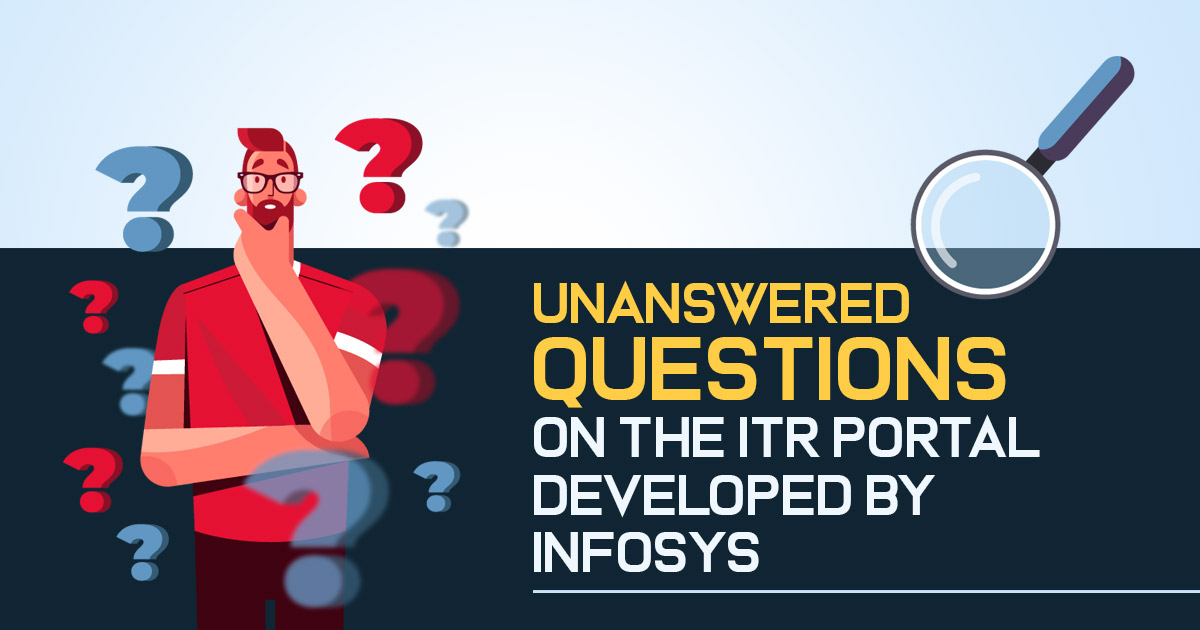
Comparing observed inadequacy with ultraist purposes like an anti-national plan to destabilize the administration is inexcusable when talking about icons like Nandan Nilekani, Infosys, and the information technology (IT) industry in general. The industry’s offering to India’s development is a matter that justifies no recurrence.
Recently an article was issued in the Rashtriya Swayamsevak Sangh – affiliated Panchajanya telling Infosys “anti-national” for a flaw in the upcoming income tax portal must be sentenced, as finance minister Nirmala Sitharaman exactly made this week. But, the fundamental concerns with the portal won’t be overlooked. These involve primary areas like logins, e-filing, alliances with different databases like Form 26AS, and imminent effects, which comprise the capacity to acknowledge intimations, squaring up charges, and many more. The structure is thus confirmed, however, fronting whom should it be advised?
Surely, Infosys would go for a reasonable share of criticism where the main contractor signed up for a lawfully required contract. So, setbacks in performance display badly on its record administration competencies.
In its enthusiasm to win the order in 2019, Hopefully, it mostly acquires negotiations despite basics like choosing the “waterfall” design approach to adjust itself with the government’s rules of a fixed-price agreement in regards to L1.
This conclusion has been scratched back from the concurrent agile DevOps methodology carried for such innovative schemes may have pointed the concerns – in a compact group, daily intervals as well, and that too in the initial stages of development and not in the after the release of project as currently, it has been coming up with multiple issues. All this is to blame for the waterfall method adoption by Infosys.
Read Also: Most Common Technical Errors on New ITR Portal
Normally, adding the agile process is not similar to an L1 fixed-contract process pursued by the administration. The reason behind this is not compliant design, rooted upon stage-wise development, asks for more work in order to host variances emerging out of the results of every stage.
The authority itself must declare whether the terms were all the way dipped out and not unpredictable foist afterwards. The guiding principle of this supervision has been a shortage of consideration to attribute in decision-making, based essentially on moralism. Therefore, unfeasible time slots for projects accomplishment with quixotic – though popular – characteristics will have an apparent casualty. Prime variations in the Central Board of Direct Taxes (CBDT) had also affected project ownership.
The main issue behind a project collapse of such an extent, affecting 60 million taxpayers, there was no clarity regardless – on either the cause or the road map for its intent – in the public province. Asking the chief executives of Infosys for a public application below will not reach the goals of transparency along with liability.
There have been various disputed questions that would assist in explaining that fiasco. First, there is a certain program manager in the authority who is responsible for the accomplishment of the project? Any technology project – and transformational projects, in individual – lies on regular two-way communication and constant intercommunication among the client and the tech partner. Determinants of program managers in an equal way require severe adjustment to assure the project’s success. This varies from authentic supply contacts for substantial in the manufacturing domain.
Second, Infosys is the leader in handling digital transformation projects in which merit is the major element to reach completion. Its capability in banking financial services and insurance (BFSI) context is effective and this project is not a BFSI the experiences are the same. Thus it is harder to understand the miserable failure as individually assigned to them.
The third is that the before tax portal was perfectly implemented a decade before when the change from the manual system was tough to implement. The income tax department officer who handled it correctly is the present chief commissioner of income tax and these gems are available in the system. “Indeed the population level apps like the Cowin portal were executed even after the occurrence of the issues.”
It does not recognize applications like Unified Payments Interface and real-time gross settlement work on a Reserve Bank of India core banking and treasury system. It permits real-time settlements that combine 1100 clearing houses along with the 4400 currency chests which were made 10 years before through the Intellect design. A high-tech Indian firm with a worldwide appearance. Thus the skills do survive in our ecosystem for the government to implement them in the correct way as before with the domestic IT sector on the bigger transformation projects and thus this failure requires elaboration from the viewpoint.
The fourth one is why the government and Infosys created the joint statement as the partners in the same project? As it will make it much more complex as the Indian government and the opposition would create controversy in the same matter.
The impact of the failure on the taxpayers who follow the law should be the only factor in revealing the resolution. For instance, the notice is to be provided through no notifications on email. The taxpayers shall hence be in the default position if they shall not login to the portal daily and shall be liable to get fines. The government of India should give guidance to CBDT that there is no penalty which shall be obtained for non-compliance because of these issues for the trustworthy taxpayers.
Since the traditional system has been deactivated the last dates for furnishing of ITR shall get prolonged. So as to discuss with Infosys a high-ranking administrator should be delegated accountable and circulate the information of the programs until the portal gets established. There is no help or support received through public shaming, random announcements, and enduring onto recognized fame.
Prabal Basu Roy is a Sloan person of the London Business School, non-executive director, and an adviser to the Chairman of Corporate Boards








